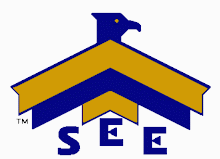4. DISC VS. MBTI: THE LAST WORD
A Training Top 125 reader is considering adding a personality profile instrument to the mix of tools and assessments currently employed for workforce development at her company. "I'd like to know which of the many options others might point me toward. The Myers-Briggs Type Indicator (MBTI) and DISC assessment seem to be our two frontrunners. What are the relative merits of each for use in corporate settings for workforce development purposes? Which would others suggest I use, if given a choice between the two?"
We've run many responses to this challenge in previous issues. Here's the last word from our Training Top 125 readers on DISC vs. MBTI:
DISC Is It
Patty Beard (Patty.Beard@dcsg.com) says if the purpose of the assessment is self-analysis, and self-analysis only, then go with MBTI. "However, if you are looking to use the assessment for self-analysis, but also want to help leaders begin to understand how to 'flex' their style to meet the needs of others, then I would recommend DISC," she says. "We use DISC, and while people really learn a lot from the self-assessment component, the tool is simple enough they can understand the profiles of others," which is helpful in fostering highly functional work teams characterized by more transparent and constructive interpersonal dynamics, she says.
Beard is senior director of talent and organizational development for Dick's Sporting Goods in Pittsburgh.
Got DISC?
Susan Stamm (susan@teamapproach.com) says the DISC has always been the preferred tool at her company. "I've had the opportunity to follow MBTI through the door as I have joined teams or leadership groups introduced to MBTI not long before I had the opportunity to work with them," she says. "On more than one occasion when I'd ask people to tell me about their style, they could not even state the four letters that comprise their pattern, let alone relate what their pattern means and how they can utilize it to be more effective with others." For Stamm, the complexity of the MBTI model has long been reason to choose DISC over MBTI. "We get less and less time to work with leaders and teams today, so we need a tool that folks can intuitively 'get' and apply immediately. DISC accomplishes both."
Stamm is president of The TEAM Approach Inc.
If the Time Is Short, Use DISC
Karen Hess (kdhess@verizon.ne) says in her consulting business, she has noticed clients tend to gravitate toward DISC more than MBTI. "DISC has been chosen because the model is quickly understood, it is remembered and applied, and it yields the results our clients desire: cultural development, management effectiveness, team effectiveness, enhanced relationships, customer satisfaction, and productivity," she says. "We respect and value MBTI as a complementary tool when time permits and with the appropriate audiences."
Hess is a workforce development consultant located in Medford, NJ.
Ease of Use
Karen Travis (karen@sigmatraining.com) says practitioners should understand the organizational need before selecting any tool, "but I typically start with DISC -- for its ease of use -- to give everyone a common starting point, and then bring in MBTI if the situation warrants. The bottom line is DISC and MBTI both have a place in personal and professional development."
Travis is president and CEO of Sigma Performance Solutions Inc. in Hunt Valley, MD.
Each Has Its Place
Sal Silvester (sal@512solutions.com) uses both DISC and MBTI – but for different reasons. "I believe DISC provides a more practical approach that allows people to use the tool on an interaction-by-interaction basis. For example, if I am speaking with a customer – in person or on the phone – I can very quickly pick up on their behavioral clues – such as body language, tone, and their choice of words – and begin to tailor how I communicate," Silvester says. "MBTI is not as easy to use this way, as it is very difficult to be speaking with someone and trying to figure out which of the 16 types he might be."
According to Silvester, however, MBTI provides a great opportunity for personal reflection and to develop a deeper sense of self-awareness. "I am a firm believer that people don't leave organizations, they leave their direct supervisor or manager," says Silvester. "MBTI provides an opportunity for leaders to learn more about their style and how that style impacts the people they
lead." Silvester is with 5.12 Solutions, a corporate training and professional development company.
DISC Connects the Dots
Pat White has been a certified MBTI facilitator and user of DISC for more than 20 years. "When working with individual leaders who are interested in understanding themselves better in order to be more resilient in tough times, I use the MBTI," she says. "It works well if multiple follow-up sessions are in place to ensure applications are understood, since that is often the weakness of this tool. However, I almost always use DISC because of the insight it allows when looking at one's behavior and the reactions of others to that behavior." White believes employees should be held accountable for their observable behavior, which is what DISC explores. "I also have found that once individuals realize flexing their behavior is akin to giving good customer service -- whether to their employees or peers -- they quickly connect the dots."
White is a certified business coach with The Spectrum Group LLC.
Subscribe to:
Post Comments (Atom)






No comments:
Post a Comment